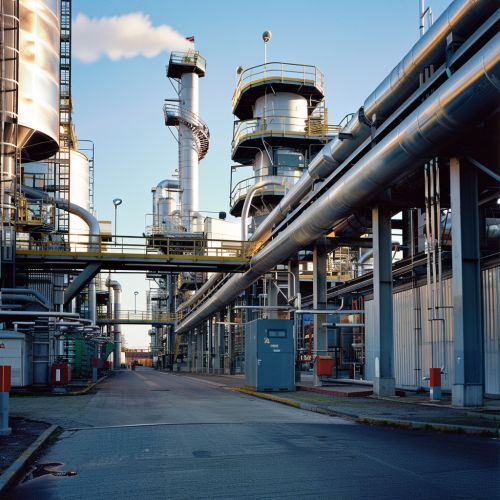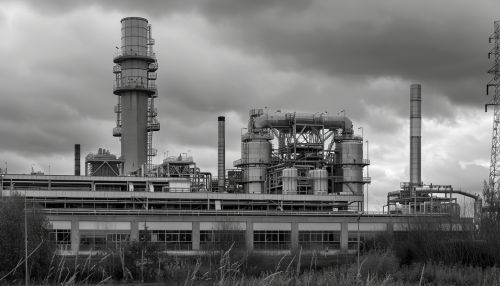Economy of Belgium
Economy of Belgium
The economy of Belgium is characterized by its highly developed, diversified, and export-oriented nature. Belgium is a founding member of the European Union and hosts several of its institutions, which significantly influences its economic landscape. The country has a robust industrial and commercial base, a well-developed infrastructure, and a high standard of living.
Historical Background
Belgium's economic history is marked by early industrialization in the 19th century, making it one of the first countries to undergo this transformation. The Industrial Revolution saw the rise of coal mining, steel production, and textile manufacturing, particularly in the regions of Wallonia and Flanders. Post-World War II, Belgium experienced rapid economic growth, becoming one of the world's wealthiest nations.
Economic Structure
Belgium's economy is diverse, with significant contributions from various sectors:
Industry
The industrial sector remains a cornerstone of the Belgian economy. Key industries include:
- **Chemical and Pharmaceutical Industry**: Belgium is a leading producer of chemicals and pharmaceuticals, with companies like Solvay and UCB playing significant roles.
- **Automotive Industry**: The country hosts major assembly plants for global car manufacturers such as Volvo and Audi.
- **Steel and Metalworking**: Historically centered in Wallonia, this sector has seen modernization and continues to be vital.


Services
The service sector dominates the Belgian economy, accounting for around 75% of GDP. Key areas include:
- **Finance and Banking**: Brussels is a major financial center, housing institutions like Euroclear and the European Central Bank.
- **Logistics and Distribution**: Belgium's strategic location and advanced infrastructure make it a hub for logistics, with the Port of Antwerp being one of the largest in Europe.
- **Tourism**: Belgium attracts millions of tourists annually, drawn to its historical cities like Bruges and Ghent, and cultural events such as the Brussels Flower Carpet.
Agriculture
Although agriculture represents a small portion of the GDP, it remains an important sector. Belgium is known for its high-quality agricultural products, including:
- **Dairy and Livestock**: The country produces a variety of dairy products and has a significant livestock industry.
- **Crop Production**: Key crops include potatoes, sugar beets, and wheat.
Trade and Exports
Belgium is one of the world's largest exporters, with a trade-to-GDP ratio exceeding 80%. The country benefits from its central location in Europe and its extensive port facilities. Major export products include:
- **Machinery and Equipment**: High-tech machinery and equipment are significant export items.
- **Chemicals and Pharmaceuticals**: As previously mentioned, these industries are major contributors to exports.
- **Food and Beverages**: Belgium is famous for its chocolate, beer, and waffles, which are popular export items.
Labor Market
Belgium has a well-educated and skilled workforce. The labor market is characterized by:
- **High Employment Rates**: Despite regional disparities, the overall employment rate is high.
- **Strong Labor Unions**: Labor unions play a significant role in the Belgian economy, negotiating wages and working conditions.
- **Social Security System**: Belgium has a comprehensive social security system that provides benefits such as unemployment insurance and pensions.
Economic Challenges
Despite its strengths, the Belgian economy faces several challenges:
- **Public Debt**: Belgium has a high level of public debt, which poses risks to fiscal stability.
- **Regional Disparities**: There are significant economic differences between the northern region of Flanders and the southern region of Wallonia.
- **Aging Population**: An aging population puts pressure on the social security system and healthcare services.
Government and Economic Policy
The Belgian government plays an active role in the economy through various policies and regulations. Key areas of focus include:
- **Taxation**: Belgium has a complex tax system with high rates, which has been a subject of reform efforts.
- **Innovation and Research**: The government invests in research and development to foster innovation and maintain competitiveness.
- **Sustainability**: Environmental sustainability is a priority, with policies aimed at reducing carbon emissions and promoting renewable energy.
Future Prospects
The future of the Belgian economy looks promising, with opportunities in various sectors:
- **Digital Economy**: Belgium is investing in digital infrastructure and technology to boost its digital economy.
- **Green Energy**: The country is focusing on renewable energy sources, such as wind and solar power, to achieve sustainability goals.
- **Healthcare and Biotechnology**: With a strong pharmaceutical base, Belgium is well-positioned to advance in healthcare and biotechnology.
